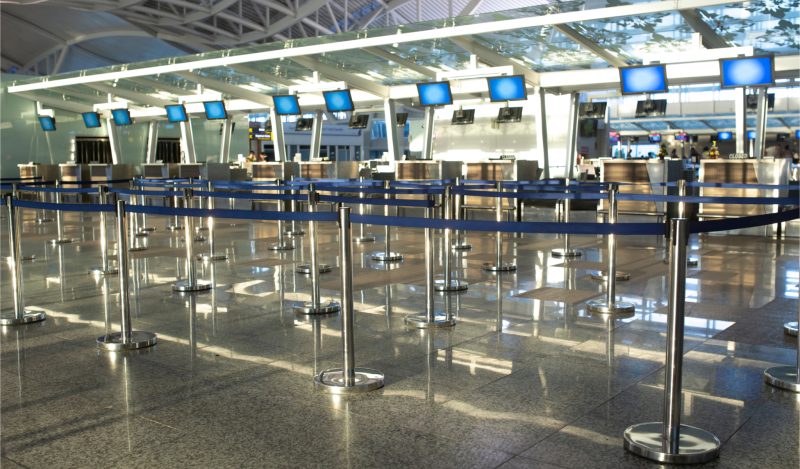Cases are rising in multiple European nations, prompting lockdowns. Most notably, Portugal, which was has been praised for high rates of vaccination (87%) has again locked down.
Also in the news: a new variant of concern has been noted by the World Health Organization, and markets are down in fear of this news. The United States and many European nations have closed the border to 8 counties in southern Africa.
Here are some thoughts.
1. Travel closures are a blunt policy intervention, and many people have argued that they are stupid—the virus is already in the house by the time you lock the door. Here are quotes from Stef Baral and Wes Pegden on the topic.
BY THE TIME YOU CLOSE YOUR BORDERS, THE VARIANT IS ALREADY THERE.
— Stefan Baral (@sdbaral) November 26, 2021
(my first all caps tweet)
Recently announced travel bans on South Africa and other countries because of the Omicron variant should serve as reminder that our tendency in many cases is not to learn from past mistakes with respect to ineffective policy, but to become desensitized to them and repeat them.
— Wes Pegden (@WesPegden) November 26, 2021
I think Stef is almost surely correct that the virus has already reached nations by the time one closes the border. Thus, the policy question of travel bans is: is the marginal benefit of decreasing or diminishing the seed load of the new strain in your nation (through the ban) worth the downside of disrupted commence and human misery that the ban imposes?
One should assume that already some amount of the new variant is already on your shores, and thus the benefit is the marginal change in that variant’s starting point. One must also assume that it is not hard to get around the travel ban, by traveling to a 3rd country before reaching your final destination.
Put that way, I am confident that both Stef and Wes are right and this is a fools’ errand, but like most things in the pandemic, there is still some uncertainty here.
2. Lockdowns. Portugal locking down is evidence that even if a nation has an 86% vaccination rate—a rate that is truly remarkable—that does not mean cases/ health systems load will necessarily be under control. This fact seriously undermines a tacit claim for vaccine mandates in the USA. The USA’s use of adult mandates aspires to push the vaccination rate to 86% (it will likely be a couple percentage points, as I argue elsewhere), but even if it did, we see now from Portgual that this rate of vaccination does not guarantee the broader health goal (ending the potential for high cases and hospitalizations across a population), which many tacitly implied was the justification for the mandate.
Put another way, the state justifies the force of the mandate because it will result in a shared public benefit, but Portugal undermines this justification. I suspect the downsides of mandates on broader political processes and life will far exceed the upside at least in the USA. And let the record also state that the way to judge vaccine mandates as a policy intervention is to look at the gains in vaccination (good) but subtract the people pushed out of the labor force, displaced from society, and downstream political consequences (bad).
3. It is embarrassing we don’t have more cluster randomized clinical trials of masking. Bangladesh is the only one reported to date (more to come on that in a future post). But none have been done in high income nations. None have been done in kids. None have been done for people post vaccine. None have been done in places with natural immunity. None have been done in cities.
Yet, as pathetic as it is to not have any credible data that our masking policies (PS – mostly cloth masking policies) work, and continue to implement and reimplement them for years with attendant moral shaming, it is far worse to continue to implement lockdown measures without knowing whether, and if so under what circumstances, they work (i.e. provide net health benefit).
We truly do not know if the actions taken in Austria, the Netherlands, Portugal etc. will result in a long term net health benefit to the community. The lockdown critics have been unfairly silenced and demonized. As we keep re-instituting these draconian measures some better evidence is needed, or we must abandon these as tools. A politician looks strong when they use these tools, but do they merely bring more misery on the citizenry?
4. We have become de-sensitized to these interventions (Lockdown & travel bans), and accordingly we use them more and more.
Recently, I talked about the history of removing our shoes at the airport, which began in the USA in 2006, and has continues to this day. Of course, only for folks who can’t afford TSA-Precheck! Shall we note the analogies?
Shoe removal had a logic in 2006 after the attempted, but unsuccessful shoe bomber. At the same time, it provides a downside. It takes time. If anyone has an empirical analysis, I would love to see it. I spent some time looking.
Clearly there is a years of life lost by the intervention. The number of people who do it x 30 -90 seconds. This will be massive! And there is a years of life gained by rarely averting a shoe weapon. Does anyone know which is larger? How effective it is? Same is true for all pandemic interventions.
The second analogy is, as was the case throughout the pandemic, the restrictions are not as onerous for the rich. (TSA Pre-check/ private jets).
And the third analogy is, after a while, we get used to the inconvenience, and no one questions it anymore. It would be inappropriate to mandate masking season after season without additional cluster randomized clinical trials. Lockdowns are far more onerous with multifaceted impacts, and should be subject to greater scrutiny.
Overall the ongoing events should prompt policy discussions about what the goals of the intervention are, and how we might generate better evidence and set limits on these tools.
Subscribe to the author’s substack for more content from him.
Published under a Creative Commons Attribution 4.0 International License
For reprints, please set the canonical link back to the original Brownstone Institute Article and Author.









